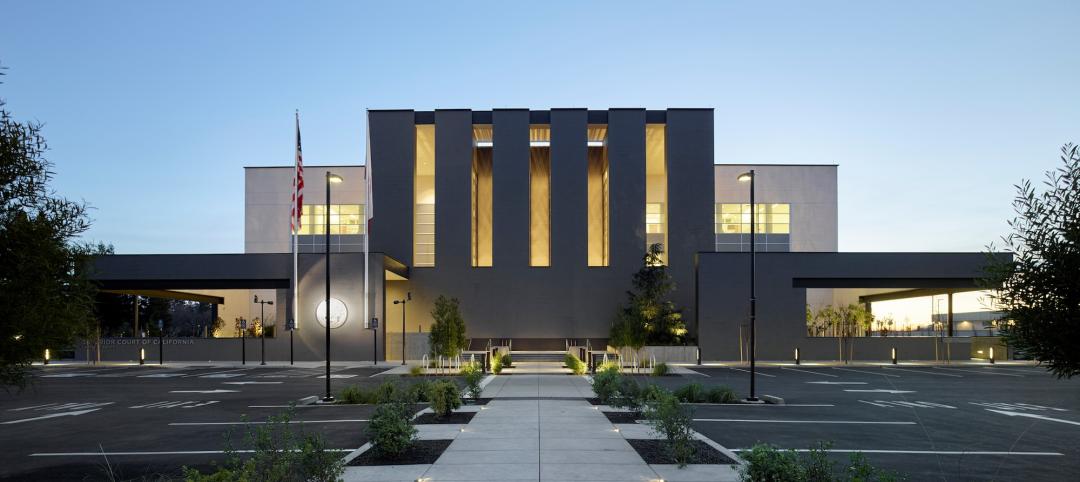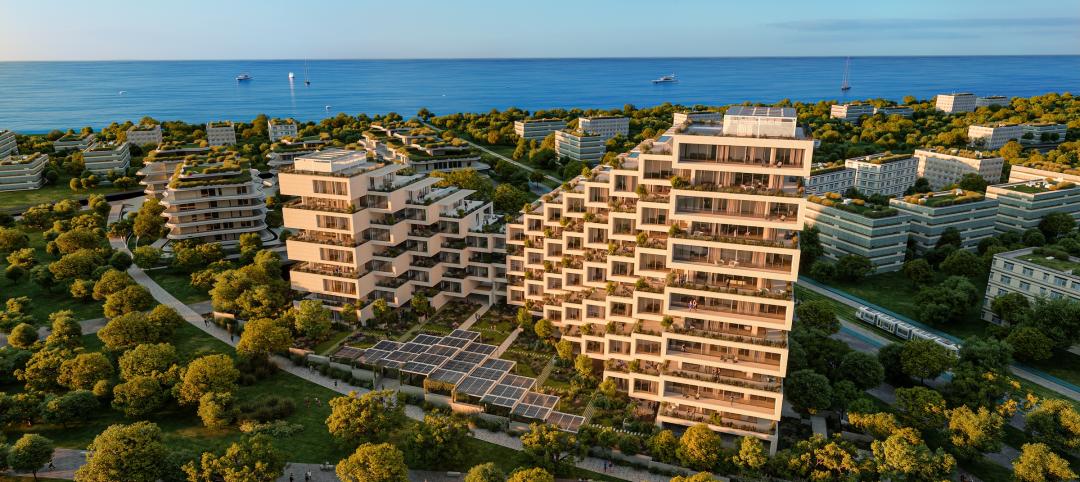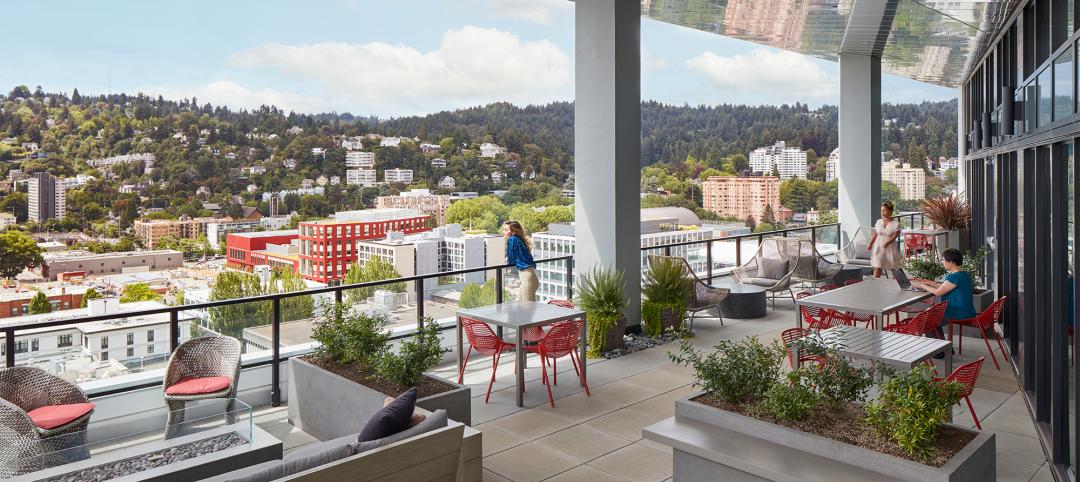As coastal flooding becomes the "new normal," many shoreline cities are trying to find long-term strategies to cope with extreme weather events. In order to advance understanding of this issue, The Boston Harbor Association teamed up with Sasaki Associates to produce Preparing for the Rising Tide, a series of reports focusing on Boston and rising sea levels.
Volume Two of this series was published in August 2014, and focuses on Designing with Water for flood management. According to the report, this school of thought "considers coastal flooding not only a threat, but an opportunity to address multiple goals while making necessary new investments in our buildings, communities, and infrastructure."
The new report contains 12 case studies of cities around the world that have applied advanced flood management techniques. In these case studies, five key design principles emerged:
1. Design for resilience. Resilience implies adapting to or bouncing back from a disturbance quickly. Resilient planning and design incorporates redundancy and anticipates change over time.
2. Create double-duty solutions. Double-duty solutions provide multiple benefits to maximize economic, ecologic, and cultural gain.
3. Strengthen community resilience. Community resilience maintains and enhances the cultural identity that defines a city through resiliency networks and social support systems. Strategies that strengthen social resilience can both cost less and provide meaningful benefits to participants.
4. Incentivize and institutionalize preparedness. Citywide and regional adaptation plans are necessary to guide resiliency efforts. Insurance standards, zoning laws, construction codes, and policy are tools that local and state governments should consider to encourage adaptation within their communities.
5. Phase plans over time. Designing with Water requires design and planning for flexibility and adaptability over time. Planning efforts that address sea level rise should be phased and have the ability to change based on external conditions.
The report concludes with recommended courses of action for members of both the private and public sectors. Here are some of the recommendations that we found particularly interesting:
Recommendations for the Private Sector:
-
Create time-phased preparedness plans based on environmental triggers such as sea level or storm intensity to maintain or even reduce risk of flood damage over time. Incorporate flood preparedness into capital maintenance schedules to minimize additional costs.
-
Look for opportunities to combine flood control with other business and institutional goals such as energy efficiency, sustainability, and livability. Coordinate such strategies with neighboring properties to provide more effective, less costly solutions.
-
Develop and teach curricula focused on Designing with Water and other flood preparedness concepts. Local design schools could be a resource.
Recommendations for the Public Sector:
-
In order to limit costly delays, dead-end investments, and exacerbated social inequalities, we strongly recommend the city of Boston and surrounding communities develop a phased master plan that protects our people and places over time as the tide rises.
-
Work with surrounding municipalities—especially those closely connected through transportation, power, water, and sewage—to develop the political will, regional planning, and resources needed to prepare for chronic coastal flooding.
-
Secure significant new public and private investment to implement the master plan and accelerate private actions. Identify an appropriate coordinating body to manage these resources most effectively to address multiple goals.
Read the full report here.
Related Stories
Architects | Jan 10, 2024
Award-winning civic design firm RossDrulisCusenbery joins DLR Group
DLR Group today announced the acquisition of Sonoma, California based civic and public safety design firm RossDrulisCusenbery (RDC). The addition of RDC adds focused design excellence of new building types to DLR Group’s global Justice+Civic studio.
Museums | Jan 8, 2024
Achieving an ideal visitor experience with the ADROIT approach
Alan Reed, FAIA, LEED AP, shares his strategy for crafting logical, significant visitor experiences: The ADROIT approach.
Designers | Jan 8, 2024
DLR Group adds executive leaders
DLR Group Chief Executive Officer Steven McKay, AIA, RIBA, announced new executive leaders for the 100% employee-owned, globally integrated design firm.
AEC Tech | Jan 8, 2024
What's driving the surge of digital transformation in AEC today?
For centuries, the AEC industry has clung to traditional methods and legacy processes—seated patterns that have bred resistance to change. This has made the adoption of new technologies a slow and hesitant process.
K-12 Schools | Jan 8, 2024
Video: Learn how DLR Group converted two big-box stores into an early education center
Learn how the North Kansas City (Mo.) School District and DLR Group adapted two big-box stores into a 115,000-sf early education center offering services for children with special needs.
Green | Jan 8, 2024
DOE releases RFI on developing national definition for a Zero Emissions Building
The Department of Energy released a Request for Information (RFI) for feedback from industry, academia, research laboratories, government agencies, and other stakeholders on a draft national definition for a Zero Emissions Building.
Codes and Standards | Jan 8, 2024
Australia to be first country to ban engineered stone countertops
In 2024, Australia will be the first country to ban engineered stone countertops. The ban came after a years-long campaign supported by doctors, trade unions, and workers over concerns that the material was causing increased silicosis cases among workers cutting and handling it.
Roofing | Jan 8, 2024
Researchers devise adaptive roof tile concept that adjusts to ambient temperatures
Scientists at the University of California Santa Barbara published a paper that proposes adaptive roof tile technology that can adjust to ambient temperatures. Using a wax motor, tiles could switch from a heating or cooling state enabling savings on heating and cooling costs.
MFPRO+ News | Jan 4, 2024
Bjarke Ingels's curved residential high-rise will anchor a massive urban regeneration project in Greece
In Athens, Greece, Lamda Development has launched Little Athens, the newest residential neighborhood at the Ellinikon, a multiuse development billed as a smart city. Bjarke Ingels Group's 50-meter Park Rise building will serve as Little Athens’ centerpiece.
MFPRO+ Special Reports | Jan 4, 2024
Top 10 trends in multifamily rental housing
Demographic and economic shifts, along with work and lifestyle changes, have made apartment living preferable for a wider range of buyers and renters. These top 10 trends in multifamily housing come from BD+C's 2023 Multifamily Annual Report.

















